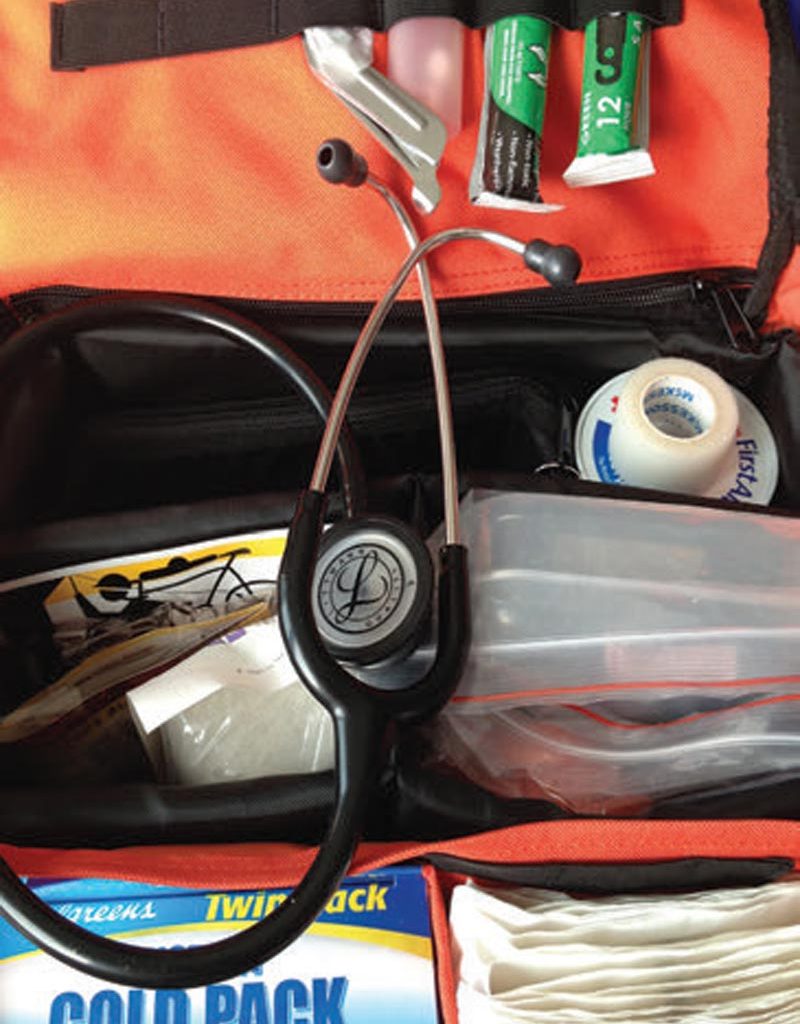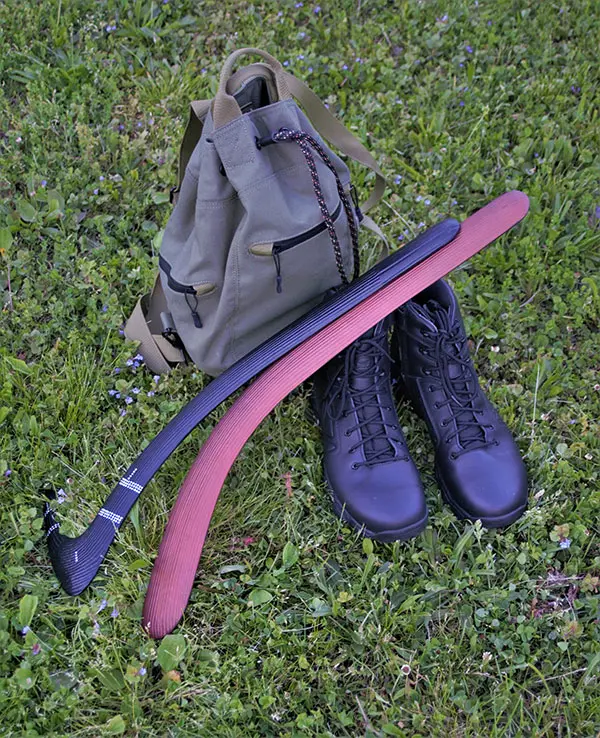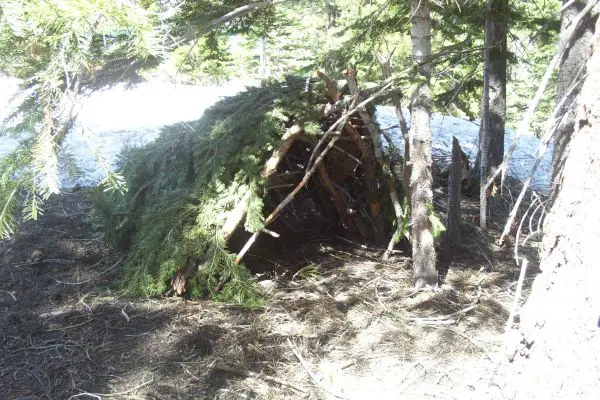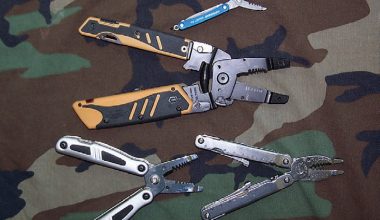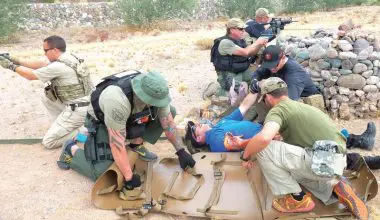During a disaster, people will often be stressed and overwhelmed with fear and desperation. While there is nothing we can do to completely eliminate stress, there are ways to minimize it and help us cope with difficult circumstances.
In a survival situation, mindset is critical. Stay calm and you will dramatically increase your odds of surviving. Lose control and your chances for survival begin to rapidly decrease. Here are some tips and strategies to help you prepare and stay cool, calm and collected when life throws its worst at you.

Table of Contents
STRESS: WHAT IS IT?
We commonly use the word “stress” to describe feelings of being overwhelmed by a situation or event. In general terms, anything that presents a threat to our wellbeing creates stress. We all have a limit as to how much we can cope with before it becomes too much and we have a physical, emotional and/or mental reaction.
The word “trauma” describes events or situations that overwhelm our ability to cope. When faced with the overwhelming stress of a survival situation, many of us start out with the best intentions, but as the situation deteriorates, so does our ability to deal with it rationally. When people are overwhelmed, they sometimes shut down and start making bad decisions. Other times they’re paralyzed and unable to make any decisions at all. In either case, once you go down this road, the outcome is almost never good.
COMMON REACTIONS TO STRESS AND TRAUMA
Once most of us leave our comfort zone, we’re in uncharted territory. We never really know how we’ll react to a given situation until we find ourselves in the middle of it. After a disaster or crisis, the world around us will look and feel very different than what we are used to. Our entire existence is turned upside down, and nothing makes sense.
After these events, we’re often removed from the familiar and thrown into a situation in which our mental and physical wellbeing is at serious risk. Although the very young and the elderly are especially vulnerable to stress, no one is immune from its effects. Even though we may all respond differently, there are some common reactions to stress and trauma.

Physical reactions include heavy sweating, rapid breathing, racing heartbeat, nausea, severe headaches, muscle tension, fatigue, aches and pains, upset stomach, dizziness, trouble eating and/or sleeping, and disturbing dreams.
Mental reactions may include feelings of denial, confusion, disorientation, indecisiveness, and lack of concentration.
Emotional reactions may consist of confusion, nervousness, helplessness, sadness, depression, apathy, anger, anxiety,fear, irritability, crying, screaming, numbness, and detachment from others.
For most people, extreme fear and the perceived loss of control over the situation take the heaviest toll during a disaster: “Something bad is happening to me and there is nothing I can do about it.”
Events that happen suddenly, catching us unprepared, often result in strong physical and emotional reactions. While there’s not much we can do to prevent disasters from occurring, we all have some control over how we plan for the unexpected.
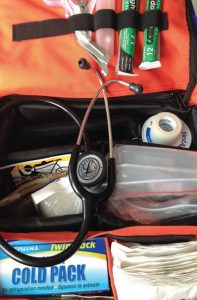
If you are weak, sickly, unhealthy, emotionally strained or frail, lacking in physical strength, endurance and/or stamina, or if you failed to make adequate preparations, you will be at high risk when confronted by the stress of a disaster.
Being prepared gives us a certain level of confidence and self-assurance. And while it will not eliminate the stress, it will go a long way toward making the situation more manageable. Trying our best to stay calm is great, but planning in advance to give ourselves the best possible opportunity for survival is much better.
PREPAREDNESS AND PLANNING
There is no substitute for knowledge, skills and preparation. Most viable survival plans include elements of food, water, first aid, medical, security, self-defense, sanitation, knowing when to stay put and when to get out. But it’s also important to remember that no amount of food or water will save you if you fall apart physically, emotionally or mentally.
There are many things you can do now that will help you and your family when disaster strikes. Here are some areas to focus on.
Maintain Physical Health
How long has it been since your last physical exam? Have you been neglecting any underlying health problems or concerns? Are you on medication that you just can’t stop taking? If you answered “yes” to any of these questions, you have some work to do and you need to get started as soon as possible.
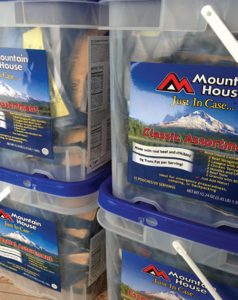
Staying healthy is a necessity and should be a top priority for all of us. A minor unresolved or unmanaged health problem can easily turn into your worst nightmare during a crisis. Managing and maintaining your health on an ongoing basis are two of the best ways to protect yourself in the event of an unexpected survival situation.
Maintain Mental Health
Life is full of stress, but we usually find a way to cope and get on with it. But sometimes we’re so busy that we neglect our mental wellbeing. Make a conscious decision to take the time to relax, enjoy life and good times with friends and the people you love. Strong social bonds help promote physical and mental health.
Having balance and happiness in your life now will make you stronger for tomorrow and what it may bring. Yoga, meditation and other relaxation techniques can also work wonders.
Maintain Physical Strength
Building and maintaining your physical strength will give you an advantage in times of high stress. Test yourself and your endurance before a disaster strikes. People who are not accustomed to long periods of walking, carrying heavy loads, and performing physical labor are ill-equipped to deal with a crisis and its aftermath.
Taking physical action to escape a dangerous situation, defend yourself, or even just carry food, water or other supplies requires a level of cardiovascular fitness and strength that many people just don’t have. A strong body will serve you well regardless of what comes your way. If there are weaknesses you need to address, now is the time to do so. And don’t forget to get enough sleep.
Come Out of Your Comfort Zone
Conveniences and electronic gadgets surround most urban and suburban dwellers. We have become overly dependent on these comforts, including air conditioning, heating, indoor plumbing, electric lights, elevators, fast food on demand, water on demand, fuel for our vehicles, and much more.
After a disaster, many of these things may be severely restricted or altogether absent, so we should always have a back-up plan. Resolve to find out what it feels like to be without electricity, running water, and phone service, and plan accordingly. Have Plans A, B and C and don’t forget to not only be realistic, but also to test your plans well in advance.
The question we should all be asking ourselves is, “If we found ourselves without food, water and electricity, how would we survive?” Think about it in advance of any disaster and make sure you have viable answers.
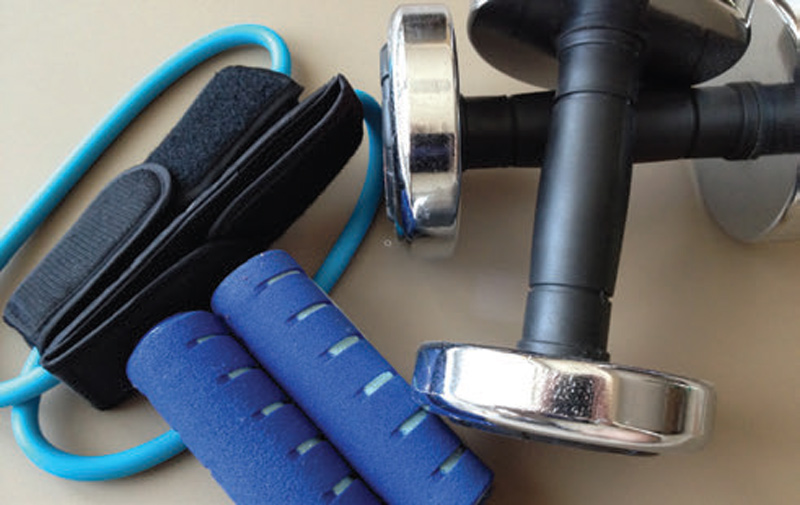
Include Your Entire Group in Your Planning
If you’re planning and preparing all by yourself, failure is not far behind—no one can do it all. Your entire group should be included.
Not all members of your group or family will have the same level of commitment or capability, but all should be familiar with the overall plan. If they’re not involved because you are attempting to shelter them, you are creating an enormous handicap for the entire group.
Everyone should play a role within their capacity and ability. At minimum everyone should be familiar with the risks, plans, and their roles.
Rough It Once in a While
Go camping, hiking, hunting or backpacking as a group. Learn how to make fire, purify water, build a shelter, read a map, use a compass, stay dry, and regulate core temperature in the outdoors. Do it as a group and make it fun.
Have different group members develop different skills and give them an opportunity to teach the other members. It will build confidence and expand the group’s skill sets. Learn what it feels like to be on your own and build up the group’s self-reliance and ability to survive in the absence of modern comforts.
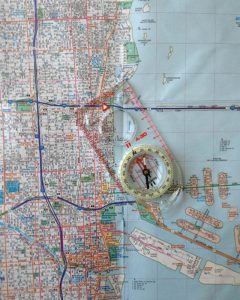
Train as a Group
When the moment comes, you will not be able to go it alone and will need your entire group—you will support them and they will support you. Learn all you can about each others’ strengths and weaknesses and work on improving as a group. Learn to work together and communicate effectively. The more you practice together, the more cohesive the team will be.
Encourage and support teamwork and cooperation. The success or failure of your plan will depend largely on the strengths and weaknesses of the individual members of your group and how well they can perform under stress.
Open Discussion as a Group
Feeling stressed is normal, but it should never dominate the situation. Accept it and move forward with a positive, “cando” attitude. Create an open and non-judgmental environment where group members feel free to discuss their feelings, but always keep it positive. Don’t dwell on the stress or other negative feelings. Keep moving forward and stay on message.
Security and Self-Defense
Nothing will spike the stress meter higher than feeling defenseless in the face of a serious threat. There is no substitute for solid planning and training. During a crisis, police and emergency services may be unavailable or seriously delayed.
If you are confronted with an assault or threat to your safety, will you be adequately prepared to defend yourself or members of your group? You must be able to answer this question sooner rather than later. Prepare in advance and make sure all group members have the proper self-defense training and necessary supplies and equipment.

Keep It in Perspective
When confronted by a stressful situation, always ask yourself what is really going on? Are you in imminent danger, or are you getting caught up in the emotion of the moment and over-reacting? Take a moment to assess your situation and plan your next step. It’s also important to assess if you are under-reacting or being complacent.
A Little Slice of Normal
A little comfort goes a long way in survival situations. Items that bring comfort—candy, games, toys for the little ones, etc—bring some relief to an otherwise stressful situation. Include as many comfort items in your planning and preparations as are practical under the circumstances.
Be Prepared
There is no substitute for being prepared. Planning and preparation lessen your stress levels and reduce your anxiety. Being prepared will also ensure that you and your group remain well fed, hydrated, and rested. These alone will reduce stress levels substantially.
CONCLUSION
True preparedness includes physical and mental conditioning, teamwork and recognizing that our plans must account for the effects of stress on our group and ourselves. Developing strategies for coping with stress must be front and center in any viable survival plan.
